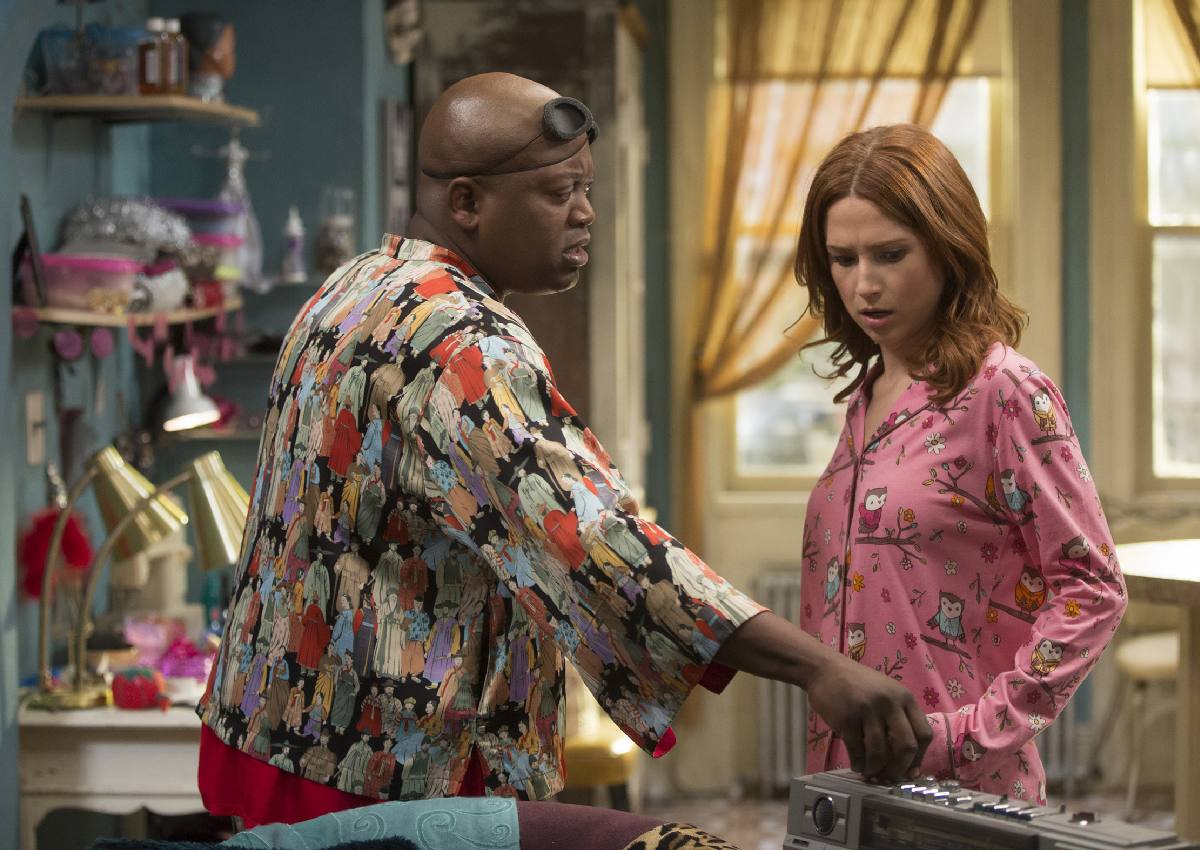Some years ago TV comedies found grim humour in ordinary domestic life. Now even sitcoms about murder and sex slavery are bright and bubbly. Nicholas Barber asks, “What changed?”
Did you hear the one about the woman who was locked in an underground bunker for 15 years by the leader of an apocalypse cult?
True, it doesn’t sound particularly side-splitting, but that’s the set-up of Tina Fey’s acclaimed sitcom, Unbreakable Kimmy Schmidt, which is beginning its second series on Netflix.
The programme has one of the darkest premises of any television comedy, and yet, miraculously, Unbreakable Kimmy Schmidt is as optimistic as its title suggests.
Kimmy (Ellie Kemper) is released from captivity at the start of the first season, so the humour stems from her sunny naivety as she adjusts to life in the open air.
Watching each episode, you marvel at the way it balances such intense darkness and such twinkly light – but Unbreakable Kimmy Schmidt isn’t unique.
In sitcoms, the most joyous comedy is often associated with the most horrific scenarios. Stranger still, the most depressing comedy tends to be set in places that don’t seem too bad at all.
A typical sitcom revolves around fairly cheerful people in largely comfortable surroundings: a taxi firm, a family home, a bar where everybody knows your name.
But sometimes a series will look beyond these convivial environments to examine the characters’ misery, whether it’s the frustrations of Harold in Steptoe and Son, or Al Bundy in Married with Children, or – best of all – Reggie in The Fall and Rise of Reginald Perrin.
This gloomy sitcom strain reached its pitch-black extreme in the late 1990s and early 2000s, a time when any British comedy associated with Chris Morris, Julia Davis, Mark Gatiss or Armando Iannucci was unwatchable without strong nerves and a stronger stomach.
Read the full article here







